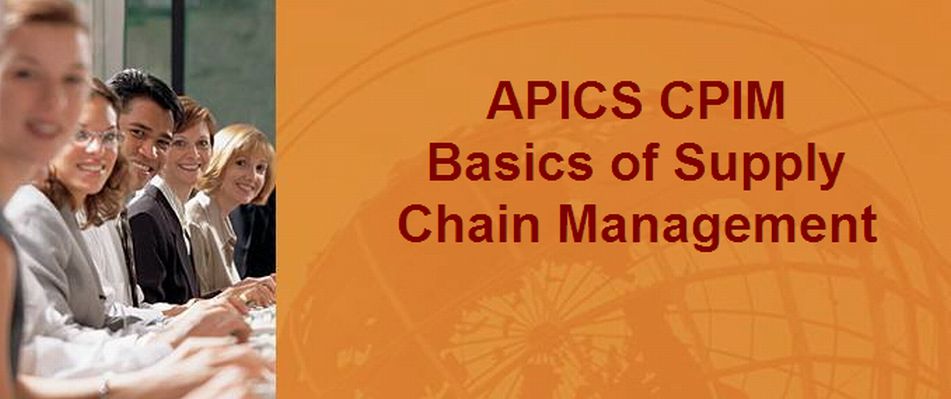|
| Copyright © ABCAN Consulting
|
|
ASCM
Temel Eğitim ve Sertifika Dersleri
|
||||||
|
||||||
|
CPIM01 Basics of Supply Chain Management CPIM Basics of Supply Chain Management is the first of the two CPIM modules. Basics is developed as the entry course into the CPIM program. In this course, one will explore the basic concepts of managing the flow of materials in a supply chain. The course covers a complete overview of material flow, from internal and external suppliers, to and from organizations. Professionals seeking to enter or improve their knowledge in supply chain field, logistics, materials management, operations management, ERP users, and professionals pursuing CPIM designation should take this course.
Section A: Introduction to Supply Chain Management Manufacturing concepts, business environments, conflicts, role and objectives; ERP systems, manufacturing processes, product life cycles, supply chain concepts and issues, materials management, importance of planning planning and control systems, United Nations Global Compact corporate responsibilities. Philosophy,culture and methods of lean manufacturing.
Section B: Demand Management
Demand management processes, characteristics,
patterns;
principles of forecasting; forecasting techniques and process;
management of forecast, bias and error measurement.
Section C: Master Planning
Section D: Material Requirements Planning Use of material requirements planning (MRP); MRP process; bill of materials; MRP logic, order planning and control. Use of planning data, planning parameters,bill of material (BOM). Uses of BOM, expediting, de-expediting and changes to MRP.
Section E: Capacity Management Capacity management, priority planning, calculation of capacity. Routings, work centers, lead time components, load and cpacity, resolving differences, back-schedule.
Section F: Purchasing Purchasing types, purchasing process and control; value added roles of purchasing, objectives, purchasing management, executing the purchasing cycle, supplier performance and management.
Section G: Inventory Management •Aggregate and item inventory management, classification of inventory, functions of inventory; ordering and carrying inventory. economic order quantity (EOQ) and other lot sizing methods; order point, safety stock, service level; ABC analysis and inventory performance, auditing inventory records, cycle counting.
Section H: Execution and Control Theory of constraints (TOC), managing throughput, understanding constraints, bottlenecks, drum-buffer-rope applications, throughput accounting. Activities of production and control, PAC system; techniques of scheduling; shop order and implementation of input/output control.
Section I: Physical Distribution Physical distribution, marketing, and production relationships, distribution system, distribution requirements planning; warehousing activities; transportation modes. Shipping costs, reverse logistics, location systems, public and private warehousing.
Section J: Continuous Improvement Uses of continuous improvement, culture, techniques and valueadd. Lean concepts; hoshin planning, kaizen, values stream mapping, poka-yoke, 5S. Critical path method (CPM), use of critical chain, TOC. Using various quality control tools and techniques. Application of continuous flow, continuous improvement in manufacturing; setup time reduction; pull systems; relationships with suppliers; total productive maintenance, employee empowerment, quality function deployment, quality management systems, continuous improvement, total quality management (TQM); costs of quality; six sigma (DMAIC) process. |
||||||
|
|
